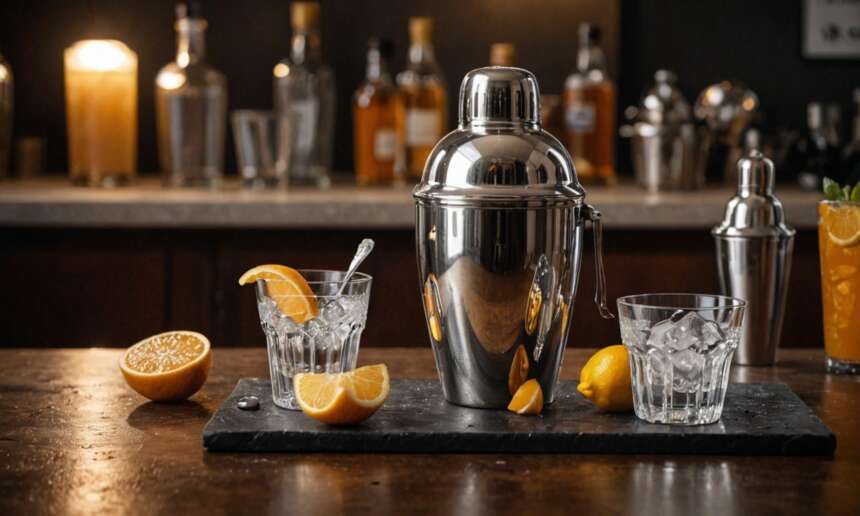If you have a passion for crafting delightful and innovative cocktails, pursuing a career as a mixologist might be the perfect fit for you. Mixology is an art form that combines creativity, precision, and a deep understanding of flavors to create memorable drinking experiences for patrons. In this guide, we’ll explore the steps you can take to become a skilled mixologist.
Education and Training
While formal education isn’t always necessary to become a mixologist, gaining knowledge and skills through specialized training programs or courses can greatly enhance your abilities. Consider enrolling in bartending schools or mixology courses offered by reputable institutions or experienced professionals. These programs often cover topics such as cocktail history, flavor profiles, mixology techniques, and responsible alcohol service.
Gain Experience
Like any craft, practice makes perfect in mixology. Seek opportunities to work in bars, restaurants, or catering events where you can hone your skills behind the bar. Starting as a bartender or barback can provide invaluable hands-on experience and exposure to different ingredients, tools, and techniques used in mixology.
Develop Your Palate
A keen palate is essential for a successful mixologist. Train your taste buds by experimenting with various spirits, liqueurs, bitters, and mixers. Take note of how different ingredients interact with each other and how they contribute to the overall flavor profile of a cocktail. Tasting and analyzing cocktails created by other mixologists can also help broaden your flavor vocabulary.
Stay Informed
Stay updated on the latest trends, techniques, and ingredients in the world of mixology. Follow industry publications, attend cocktail conferences or competitions, and engage with fellow mixologists online or in-person. Networking with professionals in the field can provide valuable insights and opportunities for growth.
Experiment and Innovate
Don’t be afraid to think outside the box and experiment with unconventional ingredients or flavor combinations. Innovation is key in mixology, and pushing the boundaries can lead to the creation of unique and memorable cocktails. Keep a journal to document your experiments and refine your recipes based on feedback from patrons and peers.
Master the Basics
While creativity is important, mastering the fundamentals of mixology is essential. Practice classic cocktail recipes and techniques until you can execute them flawlessly. Understanding the balance of flavors, proper measurements, and presentation can elevate your cocktails to the next level.
Attention to Detail
Attention to detail sets great mixologists apart from the rest. Pay close attention to every aspect of cocktail preparation, from the quality of ingredients to the presentation of the final drink. Consistency and precision are crucial for delivering exceptional cocktails consistently.
Customer Service Skills
Being a mixologist isn’t just about making great drinks; it’s also about providing excellent customer service. Develop strong communication and interpersonal skills to engage with patrons, understand their preferences, and recommend suitable cocktails. A friendly and welcoming demeanor can enhance the overall drinking experience for customers.
Obtain Certifications
Consider obtaining certifications such as Certified Bartender, Certified Mixologist, or ServSafe Alcohol to demonstrate your expertise and commitment to professionalism. These certifications can boost your credibility and open up career opportunities in upscale bars, hotels, or cocktail lounges.
Build Your Brand
Finally, focus on building your personal brand as a mixologist. Showcase your creations on social media platforms, create a professional portfolio of your signature cocktails, and participate in mixology competitions to gain recognition in the industry. Building a strong personal brand can attract new opportunities and establish you as a reputable mixologist.
Frequently Asked Questions
Below are some common questions aspiring mixologists may have:
| Question | Answer |
|---|---|
| Is formal education necessary to become a mixologist? | While formal education isn’t always required, enrolling in specialized training programs or courses can significantly enhance your skills and knowledge in mixology. |
| What are some essential skills for a mixologist? | Important skills include creativity, attention to detail, strong palate, customer service, and knowledge of cocktail preparation techniques. |
| How can I gain experience in mixology? | Seek opportunities to work in bars, restaurants, or catering events. Starting as a bartender or barback can provide valuable hands-on experience. |
| What certifications should I consider? | Certifications such as Certified Bartender, Certified Mixologist, or ServSafe Alcohol can enhance your credibility and open up career opportunities. |
| How can I stay updated on industry trends? | Stay informed by following industry publications, attending cocktail conferences, engaging with fellow mixologists online, and participating in competitions. |
| What is the importance of customer service skills? | Customer service skills are crucial for engaging with patrons, understanding their preferences, and providing an excellent overall drinking experience. |
Ingredients and Flavor Profiles
Understanding various ingredients and their flavor profiles is fundamental in mixology. Experimenting with different spirits, liqueurs, fruits, herbs, and spices can help create unique and balanced cocktails. Learn about the characteristics of each ingredient and how they interact to achieve desired taste profiles.
Equipment and Tools
Knowledge of essential equipment and tools is essential for efficient cocktail preparation. Familiarize yourself with shakers, jiggers, strainers, muddlers, and glassware to ensure proper execution of cocktail recipes. Investing in high-quality tools can enhance your bartending experience and efficiency behind the bar.




